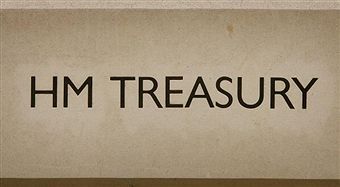 You know that child benefit cut for higher-rate taxpayers? Yeah, well, it may not be
quite as straightforward as the government have hitherto indicated. In an important post on his Wall
Street Journal blog, Iain Martin sets out a problem that is exercising nerves and minds in the Treasury: simply put, there’s no existing method for establishing whether mothers (who receive child
benefit) are living in a household which pays tax at the higher rate. In effect, this means that the policy is “unenforceable” – although there are some possible solutions, as Iain
points out:
You know that child benefit cut for higher-rate taxpayers? Yeah, well, it may not be
quite as straightforward as the government have hitherto indicated. In an important post on his Wall
Street Journal blog, Iain Martin sets out a problem that is exercising nerves and minds in the Treasury: simply put, there’s no existing method for establishing whether mothers (who receive child
benefit) are living in a household which pays tax at the higher rate. In effect, this means that the policy is “unenforceable” – although there are some possible solutions, as Iain
points out:
“I hear that ministers are considering (and tell me which part of the rest of this sentence might provide cause for concern) ‘a new government database’ to try and match up mothers with their partners. In theory it would enable cross-checking of the child benefit claims of mothers with the national insurance numbers, tax codes and addresses of fathers/husbands/partners. What could possibly go wrong? The government’s record with new databases is not great.”
Or another option (that Iain describes as “the best way out”) is that the coalition decides to ditch the cut closer to its 2013 implementation date. We shall see.
In any case, the flap over child benefit has taken another awkward turn. This was a policy that enraged everyone from Iain Duncan Smith, who wasn’t fully consulted before its announcement, to the denizens of Mumsnet – and it might have all been for naught. For those – like me – who hoped the coalition might curtail universal benefits in a proper and decisive manner, this is a disheartening development.
UPDATE: The Treasury have tapped out this statement:
“This is nonsense, the withdrawal of child benefit for higher rate taxpayers will be enforceable and will go ahead in 2013. The Office for Budget Responsibility has scrutinised all of the assumptions underlying the savings from this measure, including compliance. In line with the administration of tax, HMRC will take action in cases of non disclosure of information which is relevant to a person’s tax affairs. This will include the issuing of penalties. As we said at the time, the Government will bring forward legislation to implement this change in due course.”






Comments